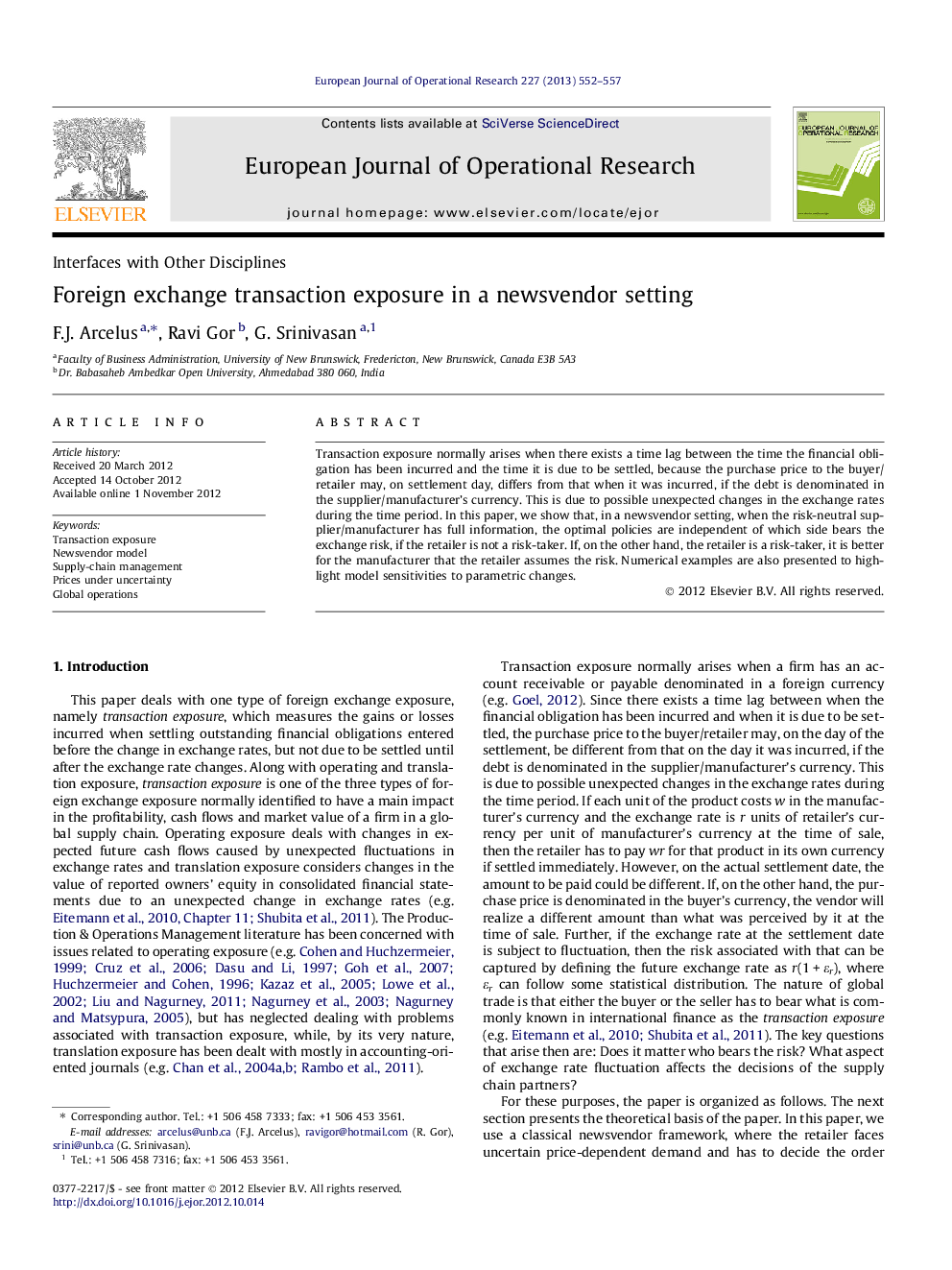| کد مقاله | کد نشریه | سال انتشار | مقاله انگلیسی | نسخه تمام متن |
|---|---|---|---|---|
| 476756 | 1446054 | 2013 | 6 صفحه PDF | دانلود رایگان |

Transaction exposure normally arises when there exists a time lag between the time the financial obligation has been incurred and the time it is due to be settled, because the purchase price to the buyer/retailer may, on settlement day, differs from that when it was incurred, if the debt is denominated in the supplier/manufacturer’s currency. This is due to possible unexpected changes in the exchange rates during the time period. In this paper, we show that, in a newsvendor setting, when the risk-neutral supplier/manufacturer has full information, the optimal policies are independent of which side bears the exchange risk, if the retailer is not a risk-taker. If, on the other hand, the retailer is a risk-taker, it is better for the manufacturer that the retailer assumes the risk. Numerical examples are also presented to highlight model sensitivities to parametric changes.
► We model the exchange-rate changes between transaction and settlement dates.
► The manufacturer decides optimally who should bear the resulting loss or gain.
► The risk-neutral manufacturer’s decision depends of the retailer’s risk preference.
► If the retailer is a risk-taker, it is better that the retailer bears the risk.
► Otherwise, the manufacturer is indifferent as to who bears the exchange risk.
Journal: European Journal of Operational Research - Volume 227, Issue 3, 16 June 2013, Pages 552–557